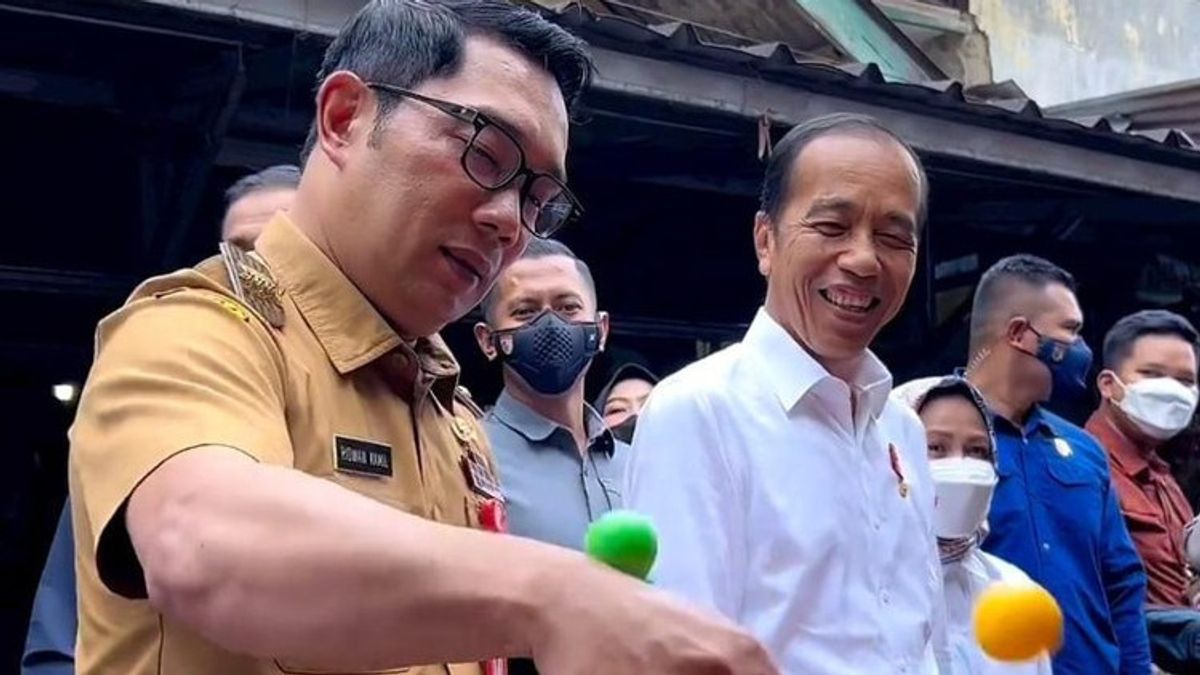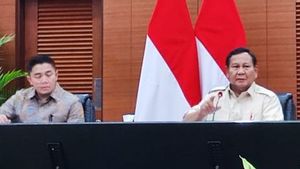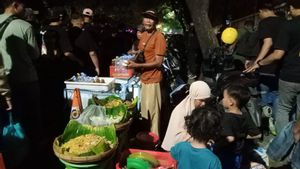The phenomenon of being addicted to gadgets in children aged 6-12 years, at least after the pandemic, is increasingly worrying. According to Retno Listyarti, children can't seem to be separated from their gadgets in their daily activities.
"After school, the one you are looking for must be a cellphone. If you want to sleep, you have to use a cellphone, wake up and remember your cellphone," he told VOI, Friday (6/1).
If it continues to be ignored, children tend to be lazy to move and will tend to be more individualist. Not yet other health problems, such as minus eyes and obesity due to eating too much but lack of movement.
That's why children need to be diverted from their gadgets. The current trend of playing lato-lato, according to Retno, can actually be a positive start for children to return to playing other traditional games. It's just a matter of how the environment including parents and family continues to introduce various traditional games to children.
Children don't play traditional games, maybe because they are not near them, they are not introduced, but if they are introduced it is likely that children will play. Moreover, it doesn't cost a lot, in the sense that they don't need an internet quota, they don't need a cellphone. It's more fun too," he said.
Child psychologist Seto Mulyadi has the same opinion. Traditional games can further reduce children's time to play with their gadgets. Not only late-lato, the Indonesian people know many fun traditional games.
"For example, angrang and games that are in groups such as gobak sodor, slank, fortification, hide and seek, and so on. Making children more skilled," said Kak Seto, Seto Mulyadi's nickname to VOI on Friday (6/1).
The variety of traditional games, according to Kak Seto, has more benefits. Regarding moral values, character, honesty, cultivating queues, working together, training the ability of the right and left brains, and many other positive things.
"By running, jumping, climbing, it's for the development of psychomotorics, so children are more agile, agile, healthier because by moving blood can flow more smoothly, and based on several studies, children will be easier to learn when routine physical activities are carried out," added Sis Seto.
Iswinarti in the book Indonesian Traditional Ends: In a Review of Cognitive, Social, and Grain Developments explained the results of his studies. He assessed that a number of traditional games have great benefits in children's intellectual, social, and personality development.
In intellectual development, traditional games can make donations to children's ability to think logically, follow rules, regulate strategies, follow more complex game rules, calculate, accuracy, and accuracy and creativity.
In social development, traditional games can help children socialize, communicate, compete, collaborate with other children, learn to divide groups and learn to become leaders.
"In personality development, traditional games can increase children's self-esteem and self-confidence, give pride to their skills and make children happy so that they can reduce emotional tensions experienced," he wrote.
Examples in traditional games such as fortitudes, bridges, goak-goaks, gobak sodors, bulwarks, and wak gung. Based on analysis, these games have learning values in four aspects of social competence, one of which is the aspect of cooperation.
The behavior that can be learned by children in this aspect appears in a number of indicators, such as:
Then, in the boy's position try to outwit his opponent so that his friend is not thrown away. In the sosor gobag, the child tries to outwit his opponent so that his friend can cross the line. In all games children will learn to share tasks with other children in their team, both in carrying out attacks, rescues, and efforts to win matches," said Iswinarti.
Not to mention learning in other aspects, such as probable solutions related to managing strategies, making decisions, overcoming conflicts. Personal control aspects, and aspects of empathy.
Kak Seto hopes that the community and the government will continue to campaign for traditional games. So that Indonesian children are more familiar with the identity of their nation, namely mutual cooperation and cooperation.
We did 3-4 years ago, where we campaigned for traditional games again. We invited the President together with the First Lady and four Ministers, at that time there were Ministers of Social Affairs, Education, Ministers of Health, and Ministers of PMK. Playing together with about 800 children from various schools of various levels, in the side yard of the State Palace. I have also encouraged curriculum to be included," he said.
Retno also wants traditional games to enter elementary school hours. For example, through physical fitness lessons, Don't just basketball, badminton, or football. It is also necessary for children to be invited to play fortification or other games that highlight the style of mutual cooperation and cooperation. Or, through other extracurricular products.
Thus, the existence of traditional games can be more popular and in demand by Indonesian children, especially in big cities.
"Don't just introduce it once a year. Unfortunately, we have a high cultural wealth but are wasted," said Retno, Commissioner of the Indonesian Child Protection Commission (KPAI) for the 2017-2022 period.
The English, Chinese, Japanese, Arabic, and French versions are automatically generated by the AI. So there may still be inaccuracies in translating, please always see Indonesian as our main language. (system supported by DigitalSiber.id)













